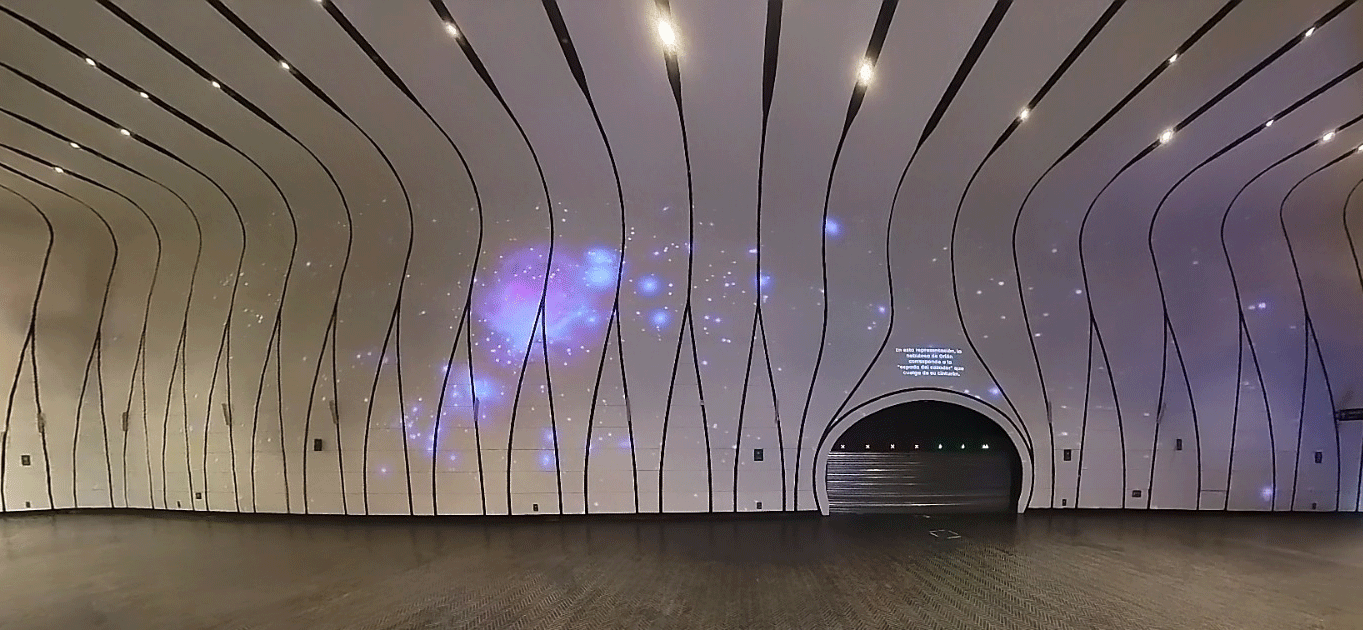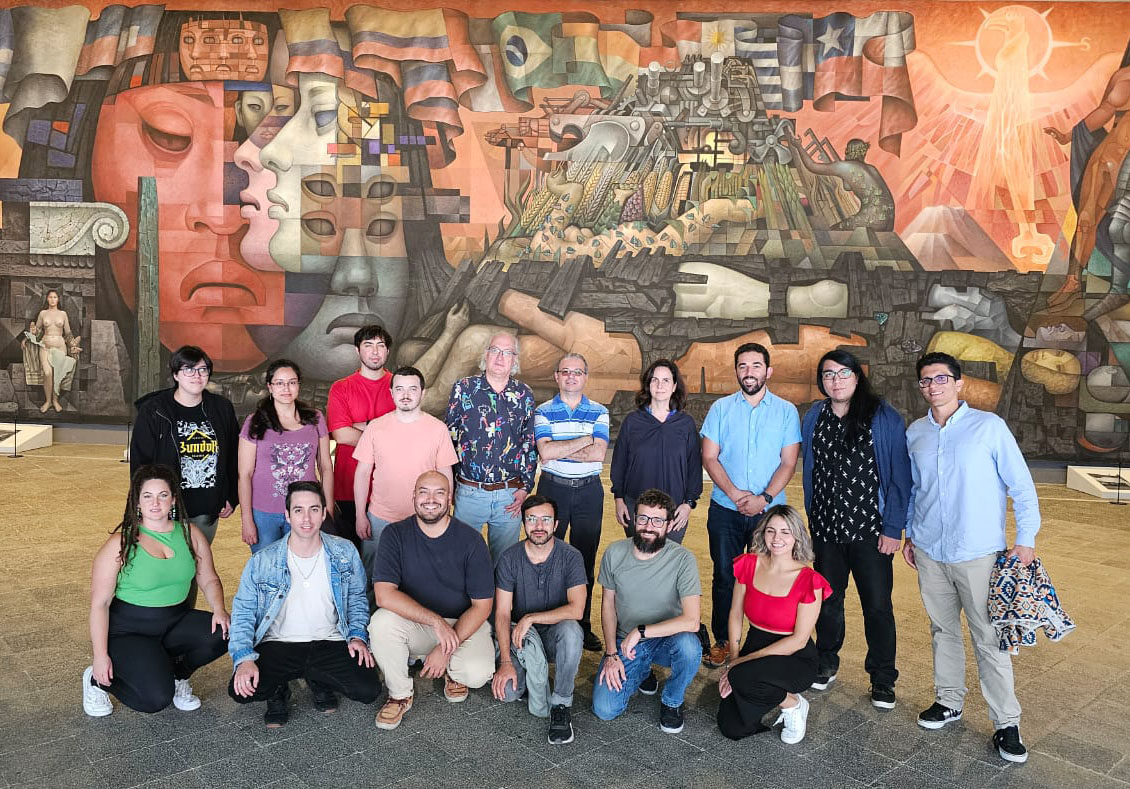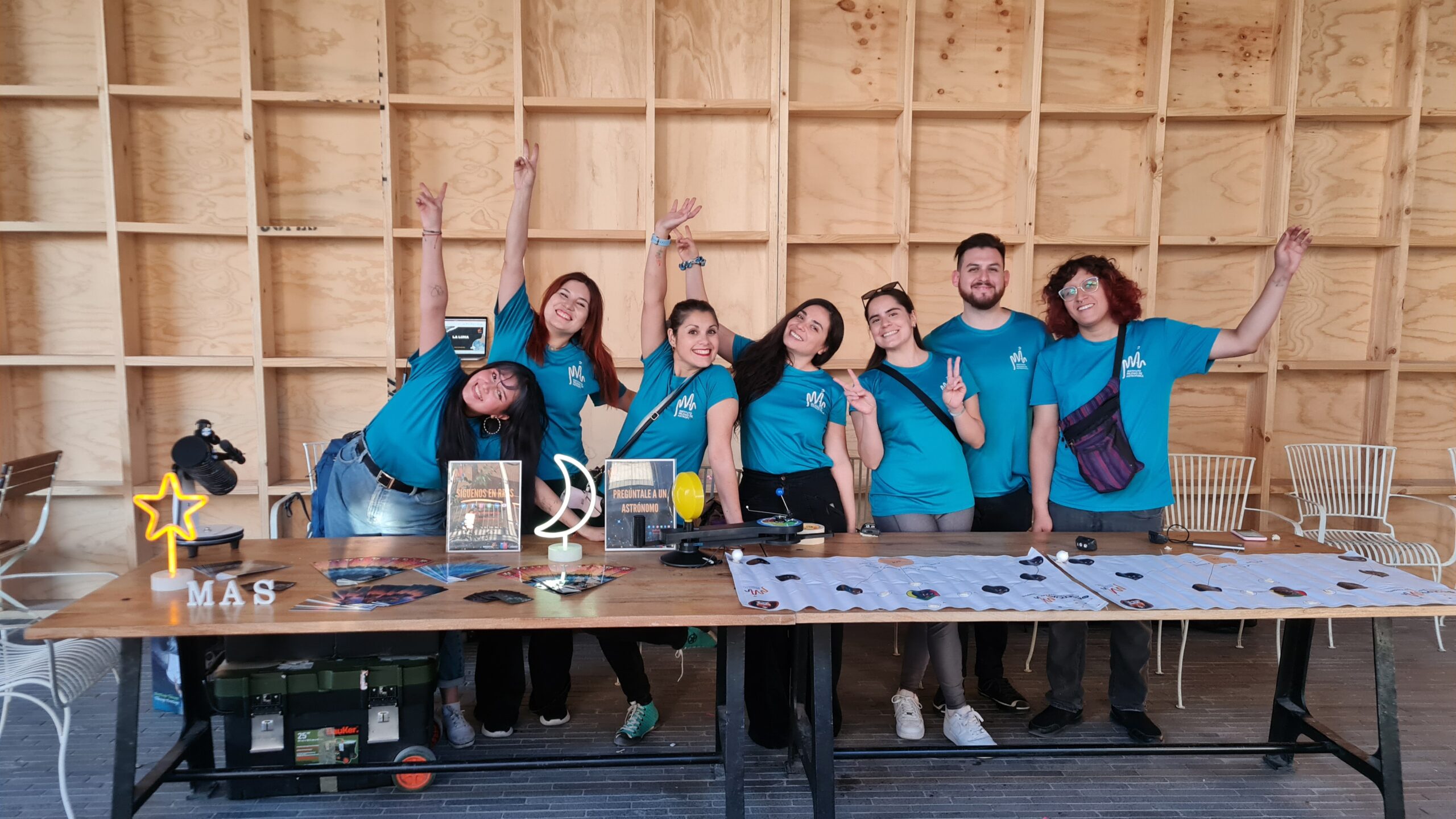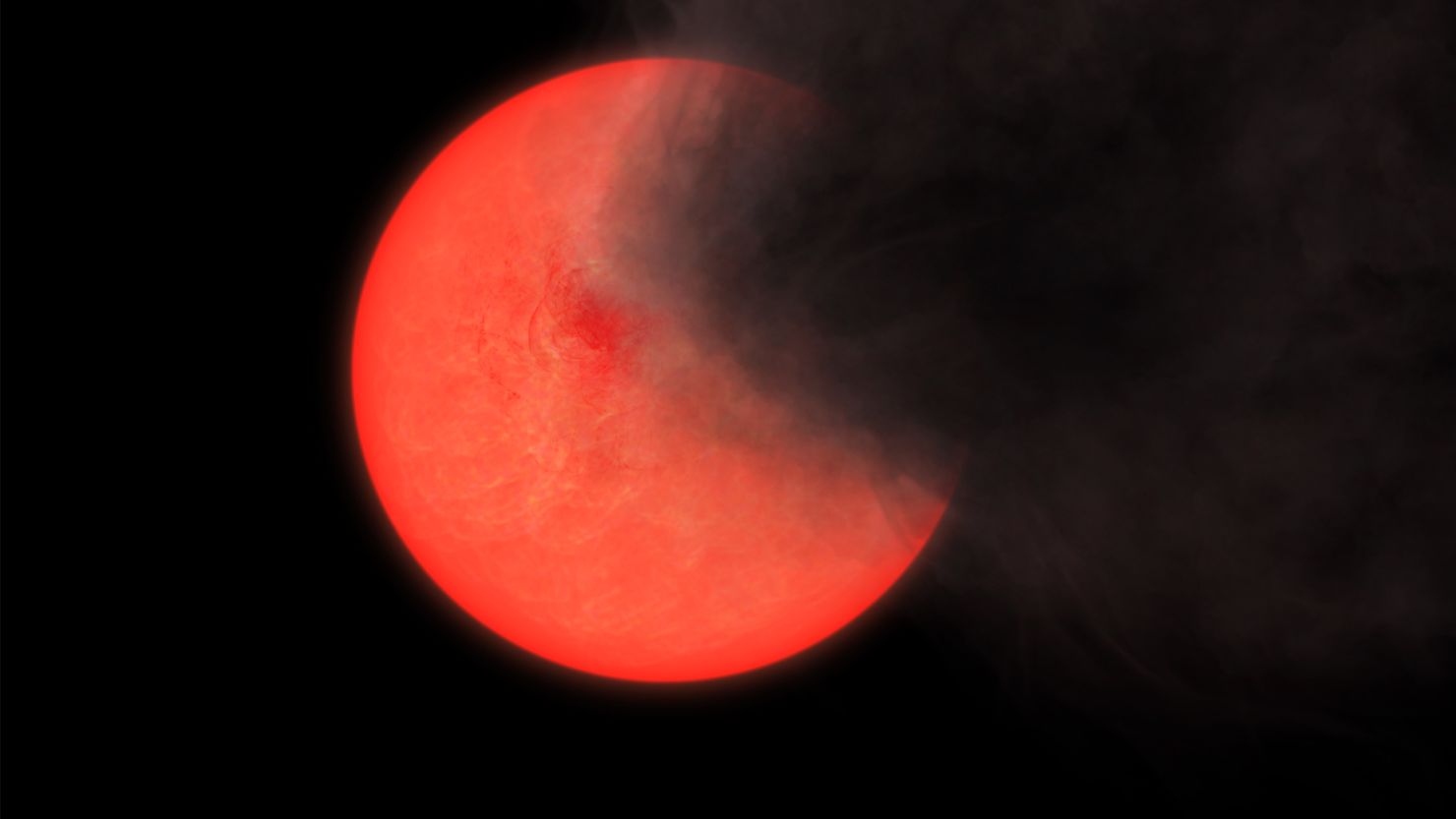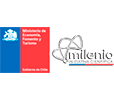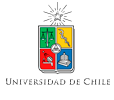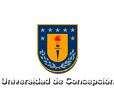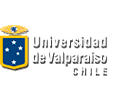[:en]Four auditoriums packed with an excited audience, everybody eager to hear every detail that led Brian Schmidt to become the 2011 Nobel Prize in Physics laureate. That was the experience in the four keynote speeches that the researcher behind the discovery of the accelerating expansion of the Universe gave as part of the MAS launching Ceremony.
Santiago, Concepción, and Valparaíso, the three cities in Chile where MAS is present, were the chosen destination to celebrate the official launching of the Millennium Institute of Astrophysics.
With the Master Lecture “Some great questions that Chile can answer”, Brian Schmidt, kicked off MAS celebrations, not before having participated in the inauguration of the school year in Santiago, along with Mayor Carolina Tohá, he also met with important authorities of the public and private sector at the Ministry of Economy and finally he met in a private audience with President Michelle Bachelet at La Moneda Palace, to talk about strategies to promote science in our country.
In every opportunity he had, the researcher highlighted the scientific development in Chile, the relevant contribution that local scientists have done to the discovery that led to the Nobel Prize – thanks to the Calán Tololo Project – and he invited to keep investing in science and technology. “Chile is investing in research to solve the mysteries of the Universe. However, what it seems so far away, can help to solve some of the present and everyday problems and, with that, change the world into a better place to live,” he states.
 MAS ceremony took place at the Honor Hall of the former National Congress, in collaboration with the Senate Commission “Challenges for the Future”, which had as guests academic authorities, politicians from the private and public sector, including the Undersecretary of Economy, Katia Trusich and the new Executive Director of the Millennium Science Initiative, Virgina Garretón.
MAS ceremony took place at the Honor Hall of the former National Congress, in collaboration with the Senate Commission “Challenges for the Future”, which had as guests academic authorities, politicians from the private and public sector, including the Undersecretary of Economy, Katia Trusich and the new Executive Director of the Millennium Science Initiative, Virgina Garretón.
On March 10th, Mario Hamuy, MAS director, Giuliano Pignata and Wolfgang Gieren, MAS Associated Researchers, along with Schmidt, went to Universidad de Concepción, where they met for a protocolary meeting with the Chancellor, Sergio Lavanchy, the Acting Dean of the Faculty of Physical and Mathematical Sciences, Rodolfo Araya and the vice-chancellors of the University. Also, in this opportunity, they visited the new sections of the Department of Astronomy with Director Douglas Geisler and finally he gave a keynote speech, once again with a large audience present.
Lastly, on Wednesday, March 11th, Dr. Schmidt along with Hamuy and MAS researchers, Alejandro Clocchaitti, Jordanka Borissova and Radostin Kurtev met with the Acting Dean of Universidad de Valparaíso and then head off to Universidad Católica de Valparaíso, where they were welcomed by the Vice-chancellor of the Center of Research and Advanced Studies of that Institution, Joel Saavedra. In both times, thousands of people were excited to hear the talk that the prize-winning, Brian Schmidt, delivered.

The number of people reached in these activities is doubtlessly the most relevant point of the three days of activities, which means, according to Mario Hamuy, a phenomenon very interesting to analyze. “Brian Schmidt came to Chile to join us for the official MAS launching ceremony, a new institution with more than 130 members from senior researchers to undergraduates. It was founded only one year ago and we are doing research at a top level. The overwhelming attendance in the four talks clears us the interests present in the citizens when they have the chance to attend to this kind of cultural activities – because science is part of culture – therefore, as a society, we should think about which are the encouragement that we should boost to be a better society,” the scientist states.
Besides of that, in Valparaiso, the researchers met with professors of Universidad Técnica Federico Santa María to talk about different ways to bring the basic science closer to engineering. Then, they shared lunch together with the Senate Commission “Challenges for the Future” held in the National Congress.
To see a complete gallery of the three days of activity go to our Facebook page.
[:es]Cuatro auditorios repletos de un público ansioso por escuchar todos los detalles que habrían llevado a Brian Schmidt a ganar el Premio Nobel de Física en 2011, fue el panorama común que se vivió en las cuatro conferencias magistrales que dictó el descubridor de la expansión acelerada del Universo en el marco del Lanzamiento del Instituto Milenio de Astrofísica.
Santiago, Concepción y Valparaíso, las tres ciudades de Chile donde MAS tiene presencia, fueron los destinos elegidos para celebrar el lanzamiento del Instituto Milenio de Astrofísica.
Con la Conferencia Magistral “Algunas grandes preguntas que Chile puede responder”, Brian Schmitd, dio por inaugurado el MAS, no sin antes haber participado en la inauguración del año escolar en la comuna de Santiago, junto a la alcaldesa Carolina Tohá, de haberse reunido con importantes autoridades del mundo público y privado en el Ministerio de Economía y en una audiencia privada con la Presidenta Michelle Bachelet en La Moneda, para conversar sobre estrategias para impulsar la ciencia en nuestro país.
En cada ocasión, el investigador destacó el desarrollo científico existente en Chile, el importante aporte que hicieron investigadores nacionales para el descubrimiento por el cual fue galardonado – a través del Proyecto Calán Tololo – y llamó a seguir invirtiendo en ciencia y tecnología. “Chile está invirtiendo en investigación para resolver los misterios del Universo. Sin embargo, esto que parece tan lejano, puede ayudar a resolver algunos problemas presentes y cotidianos y con ello transformar el mundo haciéndolo un mejor lugar para vivir”, explicó.
La ceremonia de lanzamiento del MAS se llevó a cabo en el Salón de Honor del Ex Congreso Nacional, y se realizó en colaboración con la Comisión Desafíos del Futuro del Senado, a la que asistieron autoridades académicas, personalidades políticas, del mundo privado y público incluyendo a la Subsecretaria de Economía, Katia Trusich y la nueva Directora Ejecutiva de la Iniciativa Científica Milenio, Virginia Garretón.
El martes 10, Mario Hamuy, Director de MAS, Giuliano Pignata y Wolfgang Gieren, investigadores asociados del instituto, junto con Schmidt se trasladaron a la Universidad de Concepción reuniéndose en una visita protocolar con el rector Sergio Lavanchy, el decano de la Facultad de Ciencias Físicas y Matemáticas, Rodolfo Araya y los vicerrectores de esa casa de estudio. En esa oportunidad además visitaron las nuevas dependencias del Departamento de Astronomía con el Director Douglas Geisler y se realizó la Conferencia Magistral, nuevamente con gran asistencia de público.
Finalmente, el miércoles 11 de marzo, el Dr. Schmidt junto a Hamuy y los investigadores de MAS, Alejandro Clocchiatti, Jordanka Borissova y Radostin Kurtev, estuvieron con el decano de la Universidad de Valparaíso, para luego dirigirse a la Pontificia Universidad Católica de Valparaíso donde fueron recibidos por el Vicerrector de Investigación y Estudios Avanzados de esa institución, Joel Saavedra. En ambas ocasiones, cientos de personas vibraron con la charla del Premio Nobel.

Esta gran convocatoria es sin duda el factor más destacado de estos tres días de visitas, lo que habla, según Mario Hamuy, de un fenómeno que es interesante de analizar. “Brian Schmidt vino a Chile a acompañarnos a la inauguración del Instituto Milenio de Astrofísica, una nueva organización que cuenta con 130 personas desde investigadores senior hasta alumnos de pregrado. Tiene un año de existencia y está realizando investigación al primer nivel. La impresionante convocatoria en las cuatro charlas programadas nos habla del interés que existe en la ciudadanía cuando se le ofrece oportunidades culturales – pues la ciencia es parte de la cultura – de este nivel y por lo tanto como sociedad debemos pensar cuáles son los incentivos que debiéramos impulsar para lograr una mejor sociedad”, señala el investigador.
Además en Valparaíso, los investigadores se reunieron con académicos de la Universidad Técnica Federico Santa María, para conversar acerca de cómo acercar la ciencia básica a la ingeniería y sostuvieron un almuerzo con la Comisión Desafíos del Futuro del Senado en dependencias del Congreso Nacional.
Ver una galería completa de los tres días de actividades en nuestra página de Facebook.
[:]
